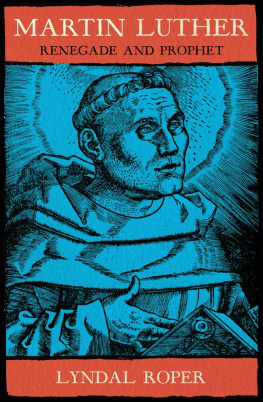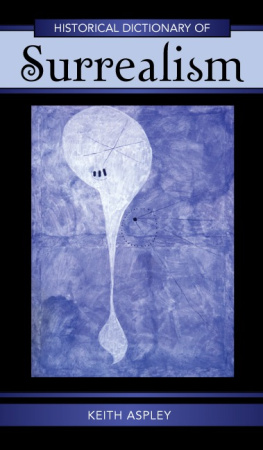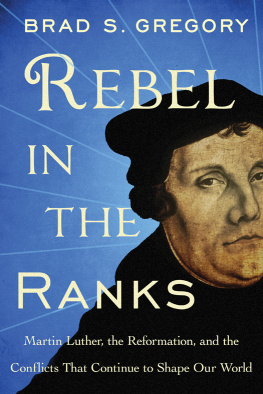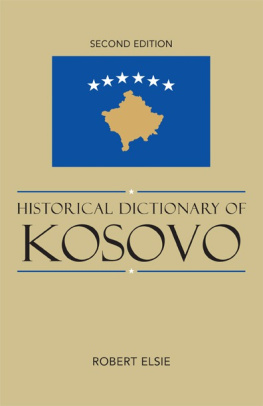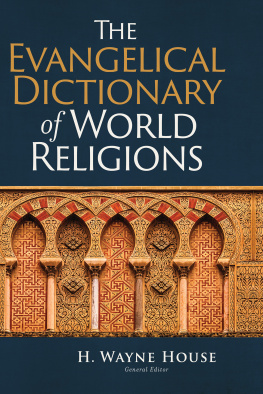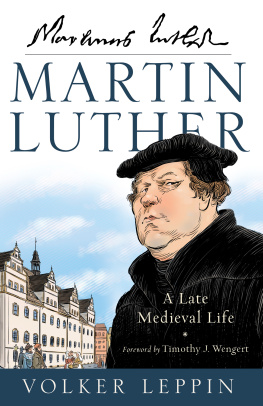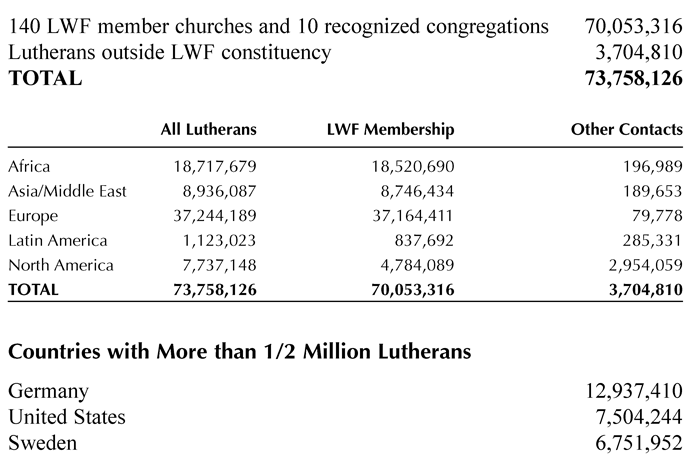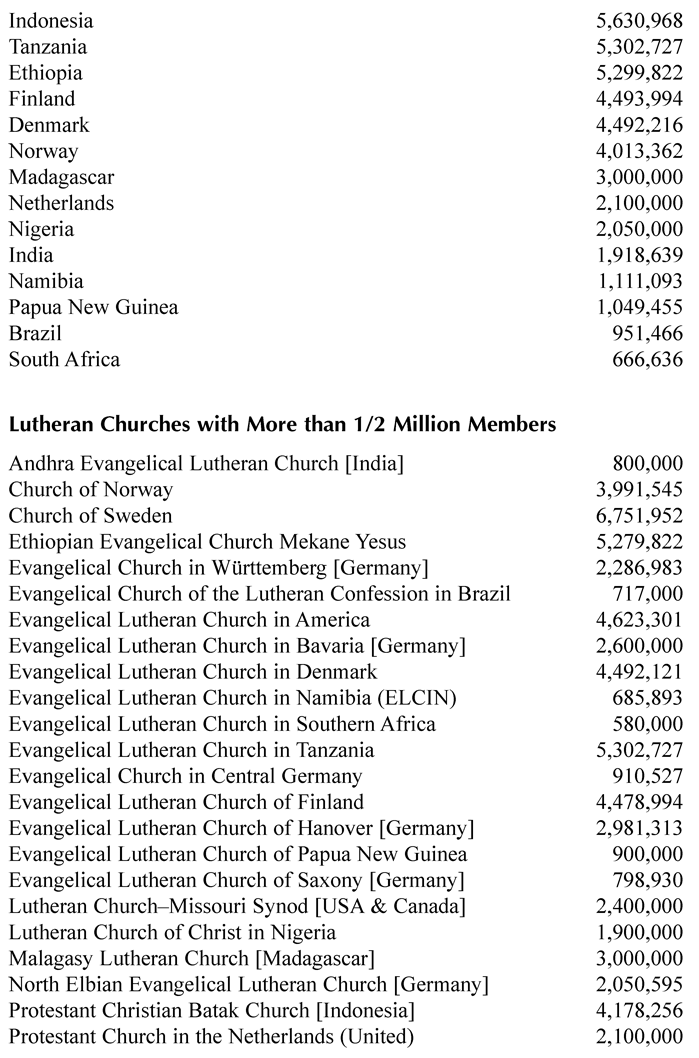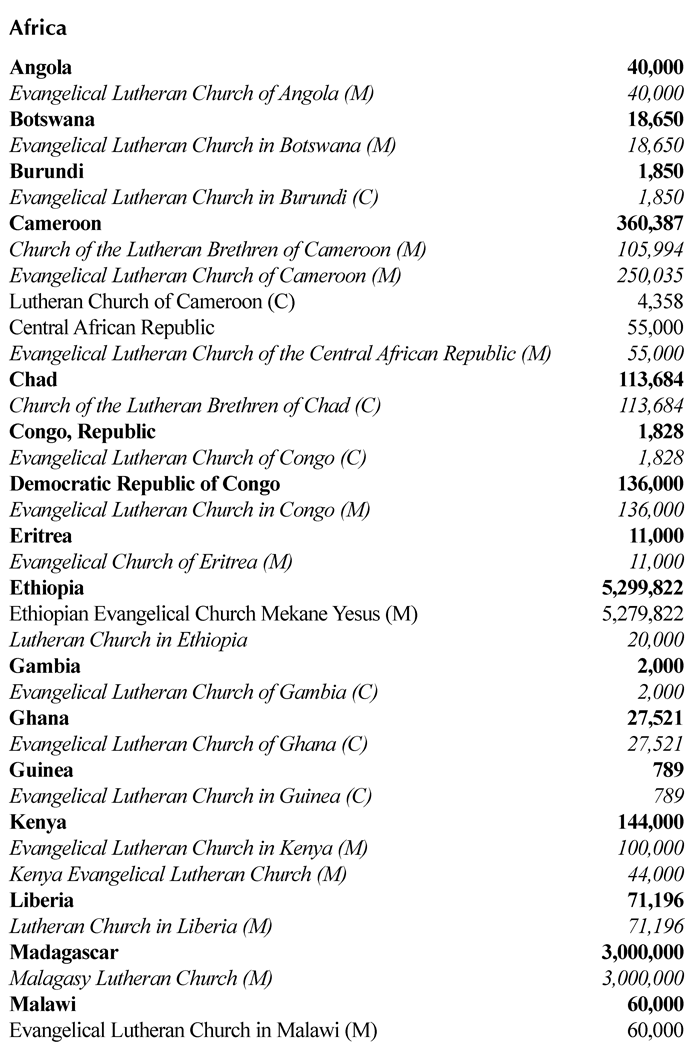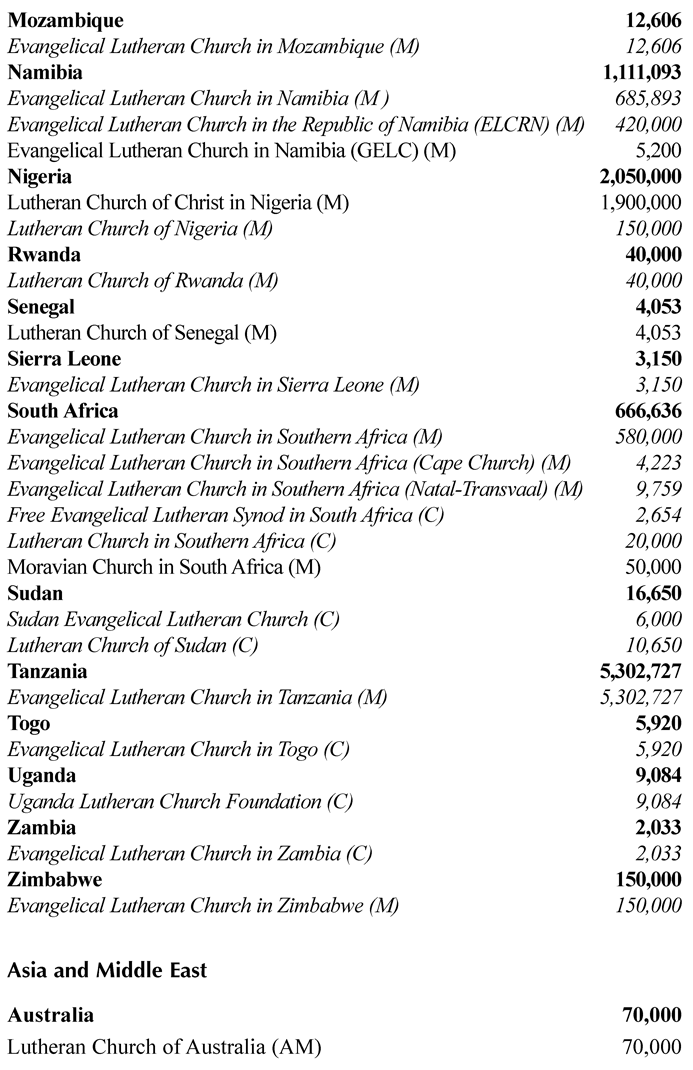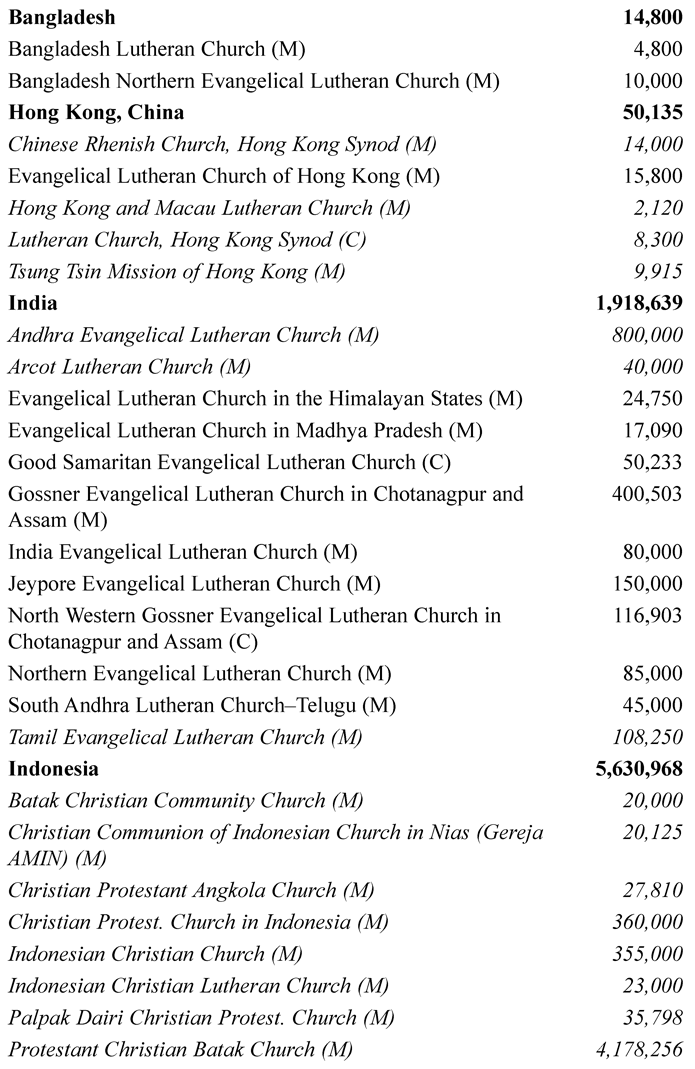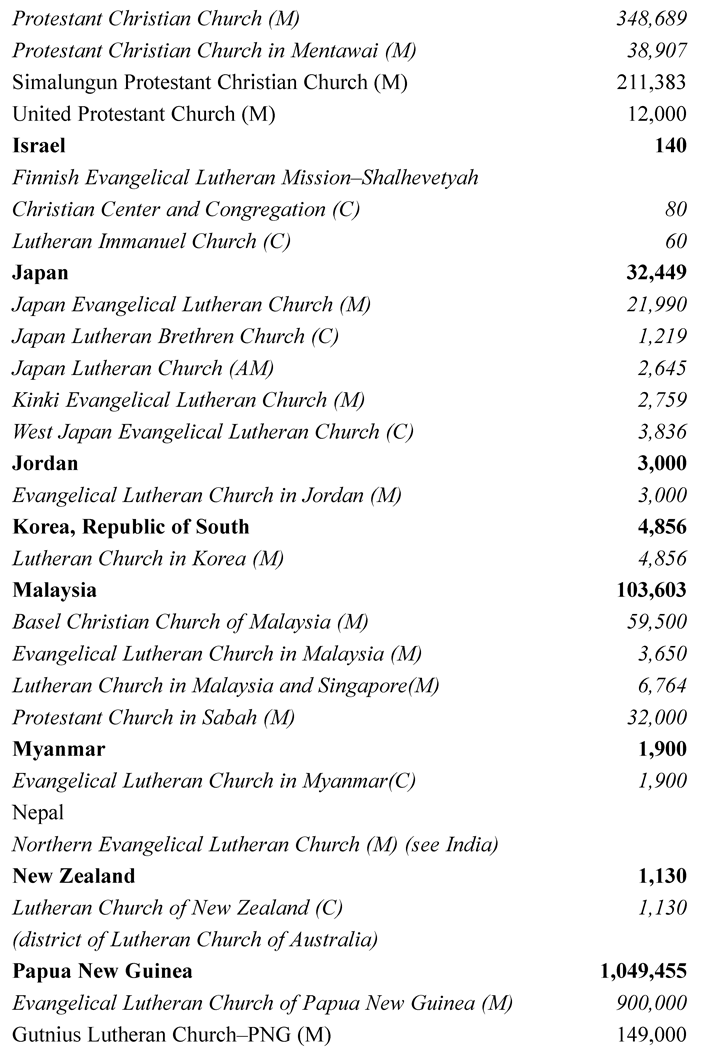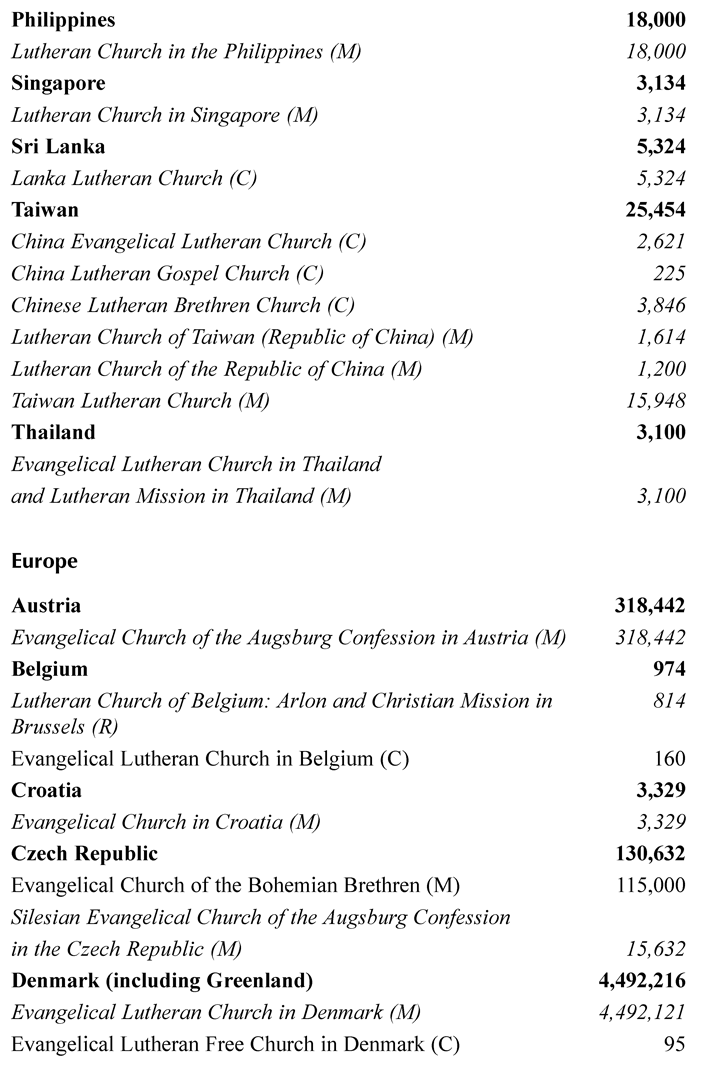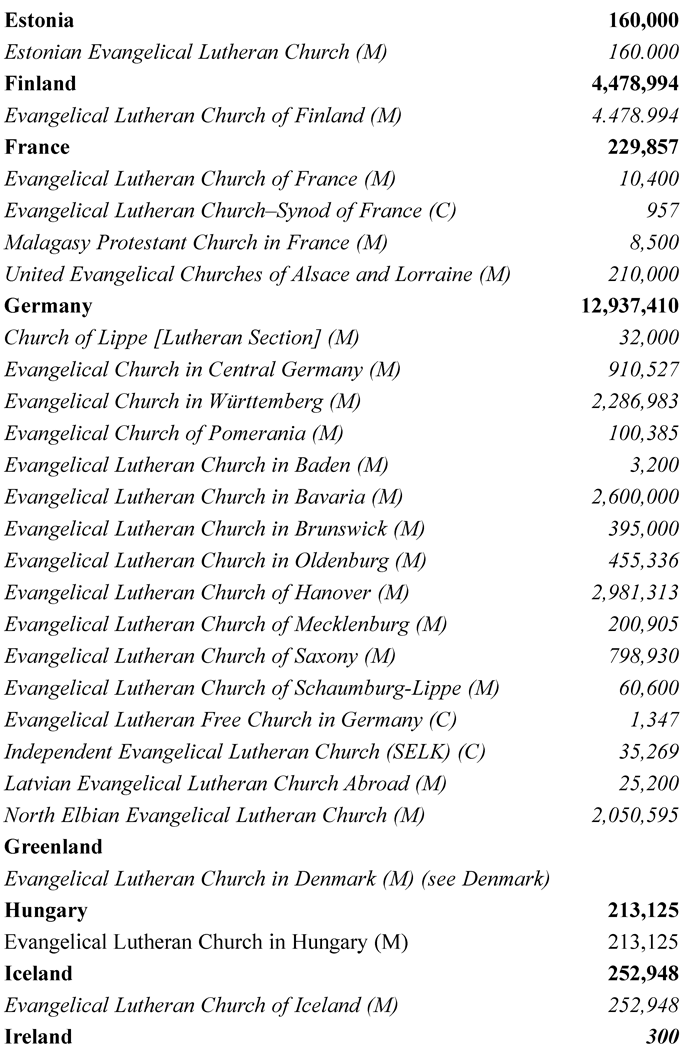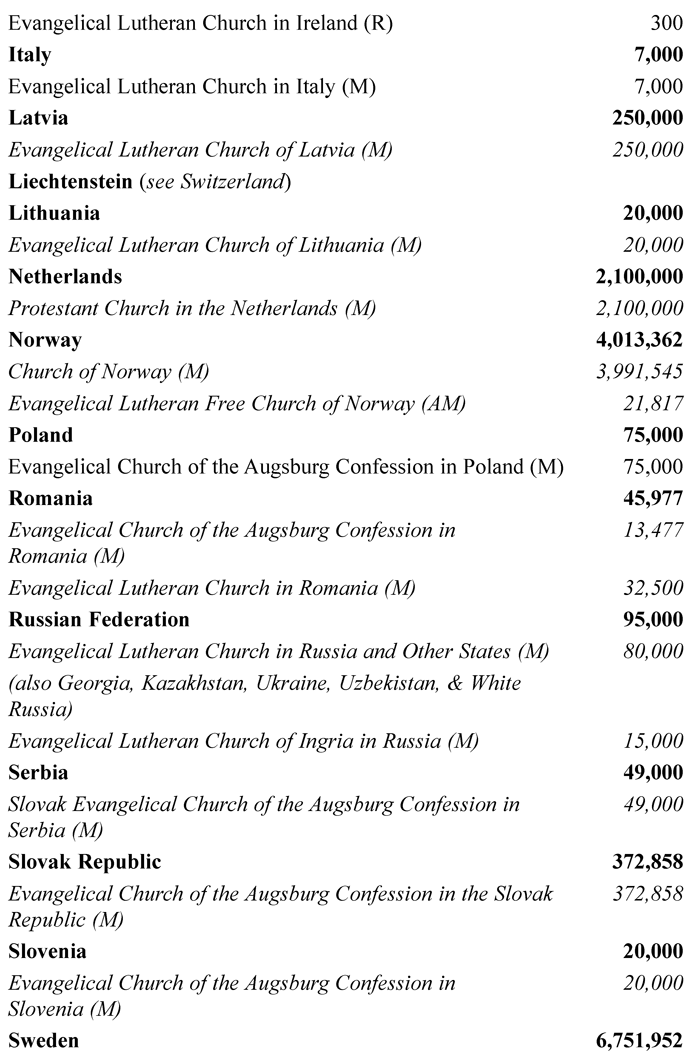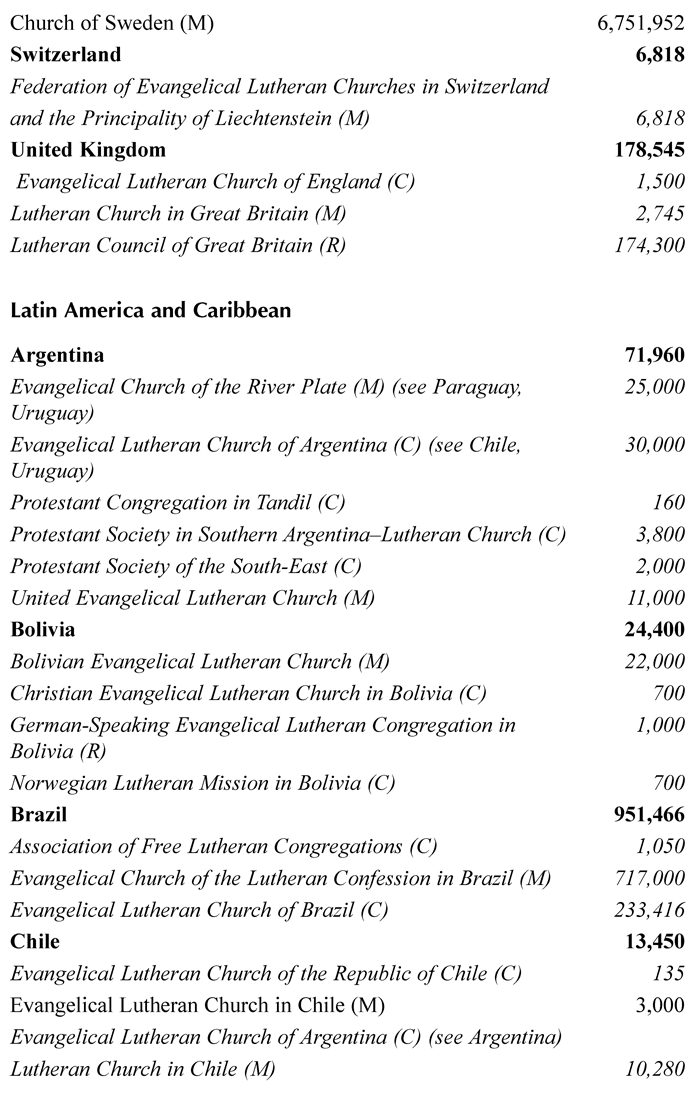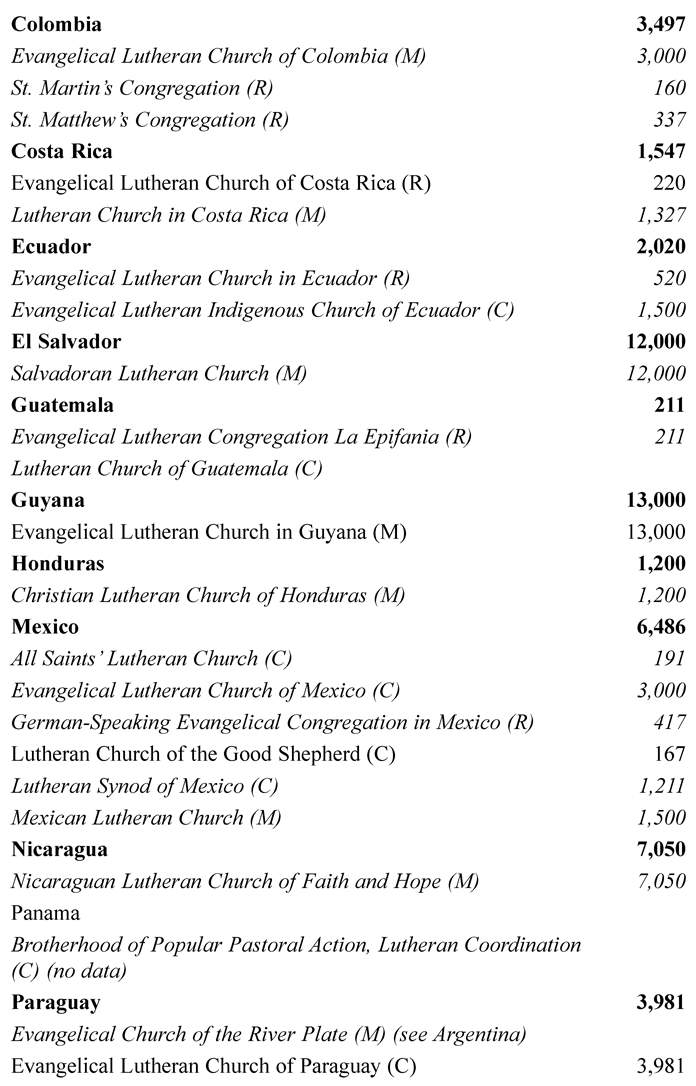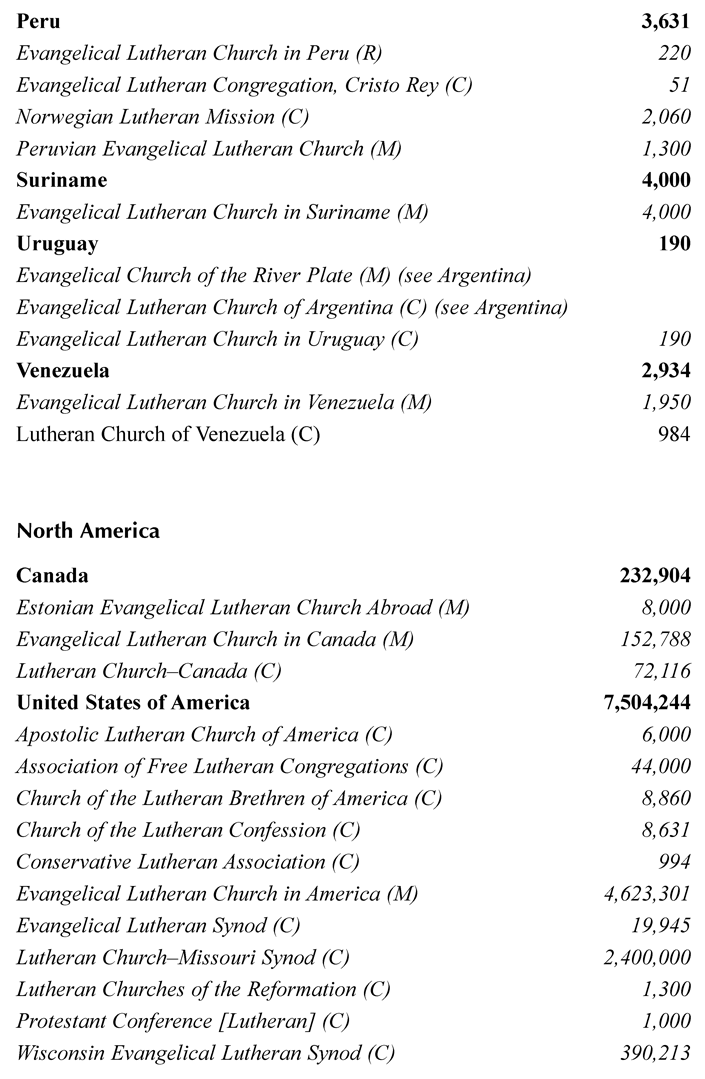About the Authors
Gnther Gassmann received a Doctor of Theology degree and a Doctor of Theology-Habilitation degree from the University of Heidelberg, Germanyhis home country. At the University of Heidelberg, he was an assistant professor in 19641969. From 1969 to 1976, he was a research professor at the Institute for Ecumenical Research in Strasbourg, France, and from 1977 to 1982 was head of the Central Office of the Lutheran Churches in (West) Germany at Hannover. In 1982, he joined the Lutheran World Federation at Geneva, Switzerland, as its ecumenical officer. His last employment before retirement in 1995 was with the World Council of Churches in Geneva, Switzerland, where he served as director of the Commission on Faith and Order in 19841994. Gassmann has written over 180 articles for periodicals and encyclopedias. His books include the Fortress Introduction to the Lutheran Confession (1999, with Scott H. Hendrix). After his retirement, he was in 19952004 a distinguished visiting professor at the Lutheran Theological Seminary in Gettysburg, Pennsylvania, and taught for shorter periods as a member of theological faculties in Tartu, Estonia; So Leopoldo, Brazil; Rostock, Germany; Riga, Latvia; Bratislava, Slovakia (where he will be teaching again in 2012); and at the Dominican University in Rome, Italy.
Duane H. Larson was president of the (Lutheran) Wartburg Theological Seminary at Dubuque, Iowa, in 19992010. A graduate of Pacific Lutheran University (1975) and Luther Northwestern Seminary at St. Paul (1979), he received a doctorate from the Graduate Theological Union at Berkeley in 1993. He served as a pastor and in 19931999 taught systematic theology at the Lutheran Theological Seminary in Gettysburg, Pennsylvania, before being called to the position at Wartburg Seminary. Among his publications are Times of the Trinity (1995) and From Word and Sacrament: A Renewed Vision of Diaconal Ministry (1999). He has also written numerous articles on theology and science and ecumenical theology. He is a recipient of two Templeton awards in Science and Religion and served as co-chair of the LutheranEpiscopal Coordination Committee in 20012007 that oversaw implementation of the full communion agreement.
Mark W. Oldenburg is professor of liturgics and chaplain of the Lutheran Theological Seminary in Gettysburg, Pennsylvania. A graduate of Gettysburg College and the Lutheran Theological Seminary at Philadelphia, he received a doctorate in liturgical studies from Drew University. Prior to his appointment at Gettysburg Seminary in 1986, he served congregations in New Jersey and spent time as a synod staff member responsible for evangelical outreach. He has published hymns and sermons as well as articles on the church year and the history of Lutheran worship in the United States.
Acronyms and Abbreviations
| ACT | Alliance Action of Churches Together |
| AELK | General Evangelical Lutheran Conference (Allgemeine Evangelisch-Lutherische Konferenz) |
| ALC | American Lutheran Church |
| CWC | Christian World Communions |
| EECMY | Ethiopian Evangelical Church Mekane Yesus |
| EKD | Evangelical Church in Germany (Evangelische Kirche in Deutschland) |
| ELCA | Evangelical Lutheran Church in America |
| ELCJHL | Evangelical Lutheran Church in Jordan and the Holy Land |
| ELCT | Evangelical Lutheran Church in Tanzania |
| HKBP | Batak Christian Protestant Church (Huria Kristen Batak Protestan) |
| ILC | International Lutheran Council |
| IMC | International Missionary Council |
| JWG | Joint Working Group between the Roman Catholic Church and the World Council of Churches |
| LCA | Lutheran Church in America |
| LCMS | Lutheran ChurchMissouri Synod |
| LIRS | Lutheran Immigration and Refugee Service |
| LSA | Lutheran Services in America |
| LWC | Lutheran World Convention |
| LWF | Lutheran World Federation |
| LWR | Lutheran World Relief |
| NLC | National Lutheran Council |
| UBS | United Bible Societies |
| ULCA | United Lutheran Church in America |
| UNHCR | United Nations High Commissioner for Refugees |
| VELKD | United Evangelical Lutheran Church in Germany (Vereinigte Evangelisch-Lutherische Kirche Deutschlands) |
| WCC | World Council of Churches |
Appendix
List of Lutheran Churches
The following list contains all Lutheran churches, missions, and independent congregations in the world, together with their membership figures for 2009. The list is taken, with some modification, from Lutheran World Information, LWI, Geneva, No. 01-2010, March 2010 (www.lutheranworld.org/News). Nearly all churches have their own website that can be found under their name.
GENERAL SUMMARY 2009
MEMBERSHIP FIGURES OF LUTHERAN CHURCHES 2009
Bibliography
INTRODUCTION
A Tradition of the Book
The Lutheran theological and ecclesial tradition is preeminently a tradition of the Book and of books. It is a tradition based on and shaped by the authority and message of the Bible. And it is a tradition whose emergence in the 16th century and its expansion, doctrinal and ecclesiastical formation, and consolation were very much facilitated and shaped by an unprecedented flow of small and voluminous publications thanks to the improved printing mechanics of the printing press between 1520 and 1540. This initial emphasis in printed materials was further strengthened and broadened by the lively inherent theological orientation of Lutheranism, its large number of theological schools, deep concern for educating the laity, the extensive theological battles carried on by means of the printed media, the establishment of specialized theological and church publishing houses, and as a consequence, a constant and ever growing flow of theological and church-related publications. This stream of books, periodicals, and brochures has not been stopped or even weakened by the ascendance of electronic media, which are also visible and utilized in Lutheran circles but have so far not stopped or weakened the still growing output of printed material. Surveying the book element of Lutheranism, it is probably safe to say that, apart from Roman Catholicism, Lutheranism has produced and is producing the largest amount of printed material within world Christianity.



